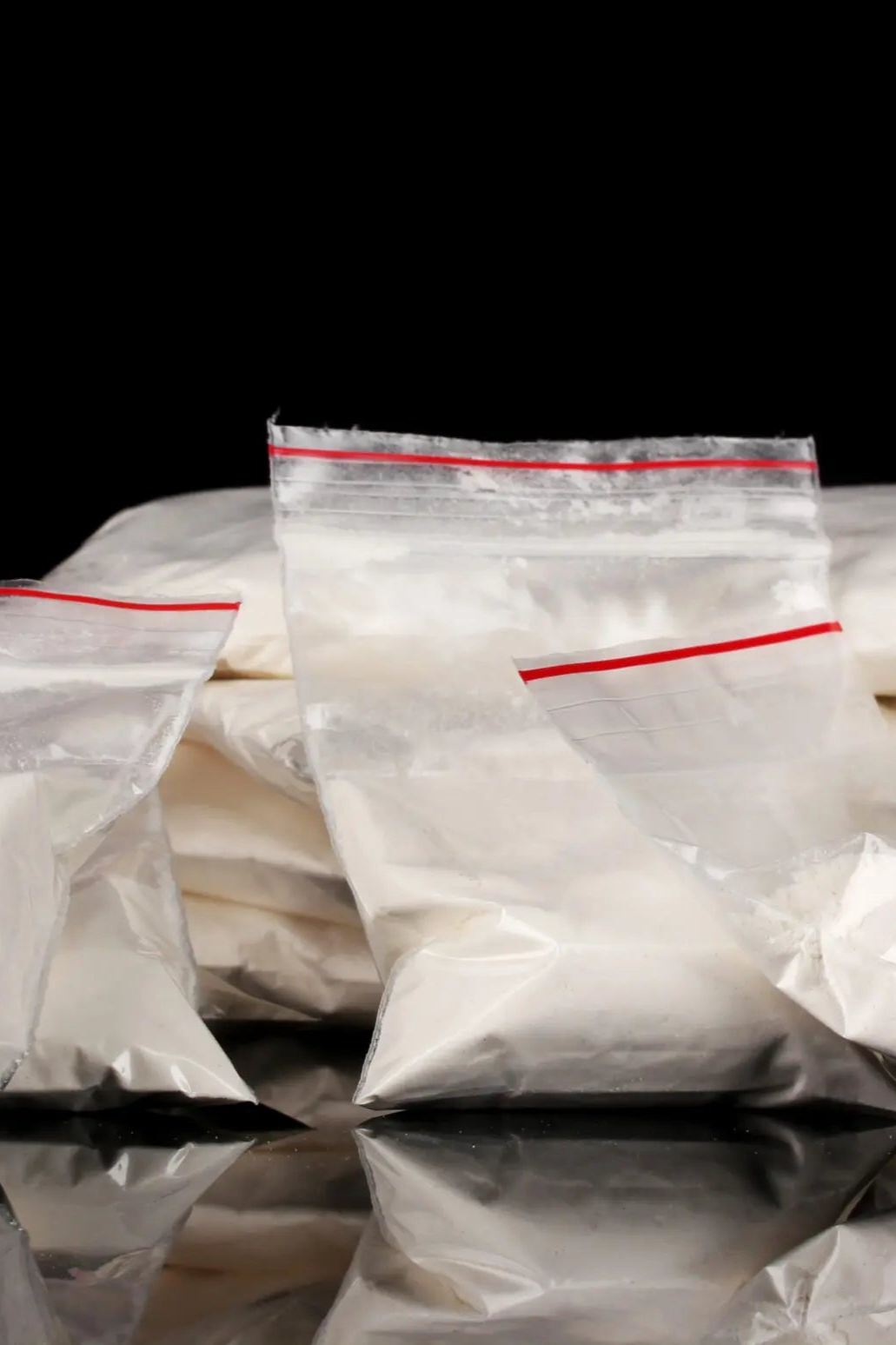Phencyclidine, better known as PCP, is a synthetic substance that was originally developed in the 1950s as an anesthetic for medical procedures. The goal was to create an anesthetic that would put patients into a pain-free, trance-like state of consciousness. However, it soon became clear that PCP could cause severe side effects, such as disorientation, hallucinations, and intense agitation, which made its therapeutic use difficult. Because the substance had potentially dangerous side effects, it was banned for human use in the 1960s. Today, PCP is an illegally traded drug and is used by some people as an intoxicant due to its intense effects on the mind and perception. The drug is usually found in powder, tablet, or liquid form and is either smoked, snorted, or swallowed.
Hallucinogenic effects of PCP: What happens in the brain?
PCP belongs to the group of dissociatives and produces strong, often hallucinogenic effects. The substance acts directly on the central nervous system and alters the function of neurotransmitters in the brain, resulting in changes in perception. The effects can vary greatly and depend not only on the dosage but also on the user's individual condition. PCP often creates a separation between consciousness and bodily sensation, leading to dissociative experiences. These include not only intense hallucinations but also significant changes in the perception of time and space. Users often report feeling as if they are "outside" their body or environment. In small doses, the drug can have euphoric effects, but at higher doses it may trigger extreme anxiety or even panic attacks. Additionally, as the dose increases, so does the likelihood that PCP will cause aggressive or uncontrolled behavior, making the drug dangerous for both the user and those around them.

Is PCP fat-soluble? What does that mean for the body?
PCP is a fat-soluble substance, which has specific consequences for how it is stored and eliminated in the body. Because PCP accumulates in the body's fat cells, the drug can remain in the body for an extended period even after acute use. This means that, unlike other water-soluble substances, PCP is not quickly eliminated. Instead, it can re-enter the bloodstream through physical exertion or increased stress, potentially causing "flashbacks" or unexpected effects, even if the last use was days or weeks ago. This re-entry into the bloodstream can unexpectedly and often unpleasantly trigger the psychoactive effects of PCP again, making the drug particularly unpredictable.

How long does PCP remain detectable in the body?
The detectability of PCP in the body depends on several factors, including the amount consumed, frequency of use, and individual physical condition. Generally, the following applies:
• Blood tests: PCP can be detected in the blood for about 1 to 3 days after use.
• Urine samples: Urine tests can usually detect PCP for up to 7 to 14 days after use. However, the detection window can be significantly longer with regular use.
• Hair analyses: PCP can be detected in hair samples for up to 90 days or longer, making this method particularly suitable for long-term detection.
Because PCP is fat-soluble, detection times can vary greatly and may be longer than for other substances. This means that use can still be detected weeks later with the appropriate tests, which is especially relevant for workplace or legal drug testing.
Zombie behavior and other extreme effects
PCP is publicly known as the "zombie drug" because some users enter a trance-like state after taking it and exhibit severely impaired control over their movements and behavior. This term comes from the fact that the drug can cause unnaturally rigid movements or a shuffling walk in some individuals. At the same time, PCP significantly suppresses the sensation of pain, which can lead people to injure themselves without realizing it. Some reports mention unpredictable outbursts of rage or aggressive behavior toward others, which is attributed to the dissociative and disinhibiting effects of PCP. In this state, users often pose a danger to those around them, as they may act unpredictably or harm themselves. However, these effects vary from person to person and cannot be precisely predicted, making PCP particularly unpredictable and risky.
Is the effects of PCP noticeable in the body for life?
Regular or long-term use of PCP can have serious and potentially irreversible effects on both mental and physical health. Over time, PCP impairs cognitive abilities and can lead to persistent psychological disorders. Some of the most common long-term effects include:
• Chronic anxiety and depression: Many long-term users develop lasting emotional problems that may persist even after stopping the drug.
• Psychosis and schizophrenia-like symptoms: The hallucinations and perceptual disturbances triggered by PCP can, with prolonged use, lead to genuine psychotic disorders.
• Impaired memory and learning ability: PCP can damage areas of the brain responsible for memory and concentration, which can significantly affect daily life and work.
• Social isolation: The psychological effects of the drug and resulting dependence often lead to isolation and loss of social contacts, as those affected may lose interest in family, friends, and work.
These long-term consequences make PCP an especially dangerous substance that can cause severe harm not only during use but also in the long run.



